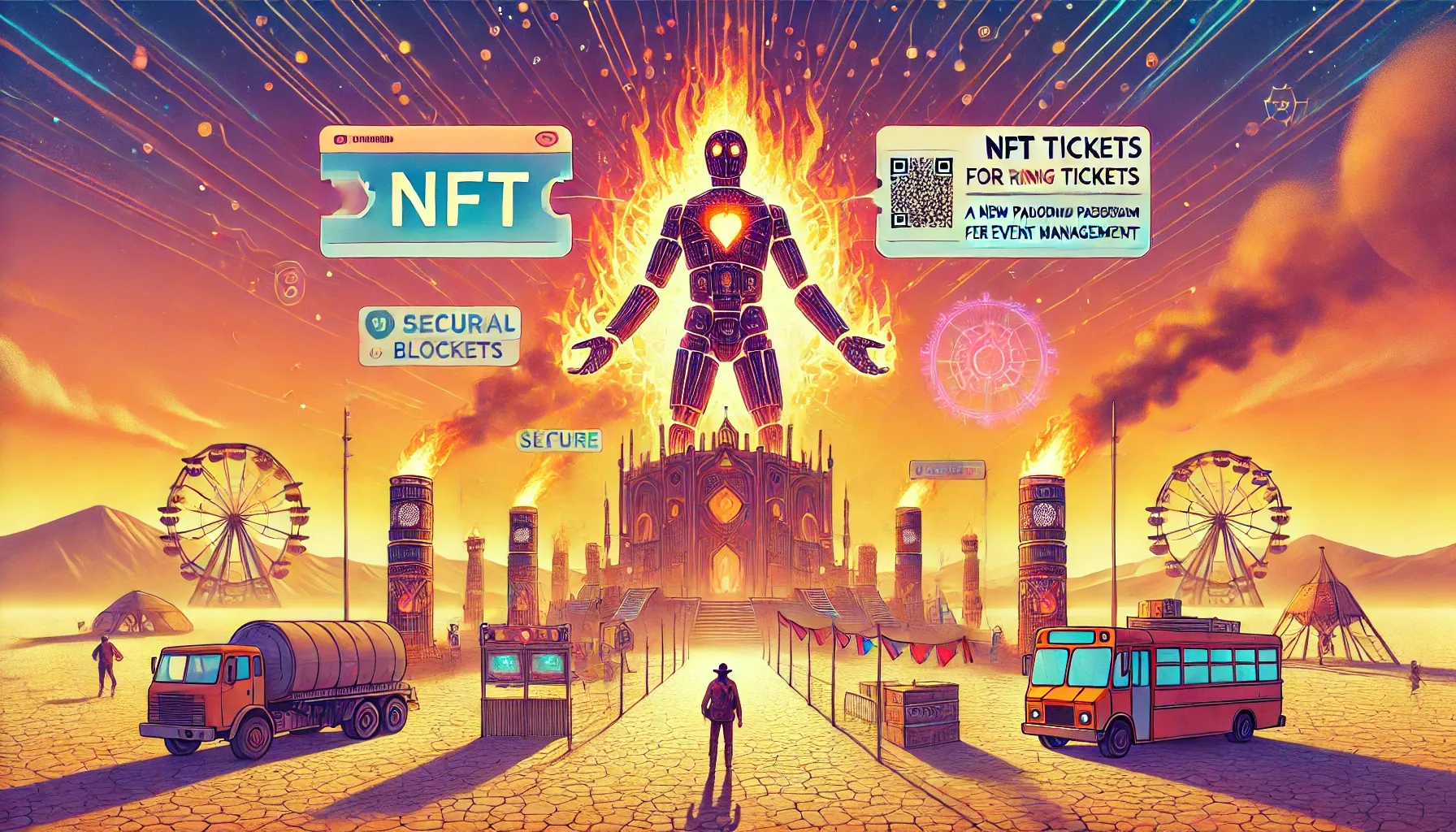
Reimagining Burning Man Ticketing: NFT Possibilities for Big Events
Introducing Burning Man
Burning Man is a phenomenon rather than merely an occasion. Tens of thousands of people congregate in Nevada's Black Rock Desert every year to establish Black Rock City, a transient city devoted to self-expression, community, art and independence. The distinctive culture and decommodification concept of Burning Man stand out in this setting, where the severe desert conditions push the boundaries of both creative and physical endurance. The festival's appeal lies in its capacity to create a space free from commercial sponsorships and transactions where radical forms of expression can thrive.
The difficulties faced by possible participants
An individual seeking more than a festival experience is the typical Burning Man attendee. Their diverse backgrounds bring them together in the desert to experience and contribute to a shared culture of creativity and self-expression. They are artists, creators, adventurers, and seekers of strong community ties. But there are drawbacks to going to Burning Man. There are no traditional amenities because of the isolated desert setting. Extreme weather conditions and dust storms require attendees to be resilient and prepared. The logistical difficulties of ticketing in such a setting are also significant, with problems like ticket loss, counterfeiting, and illegal resale being especially troublesome.
The Function of NFT Ticketing in Addressing These Issues
A number of the inherent problems with traditional ticketing may be addressed by NFT ticketing systems.
- Superior Accessibility and Durability. Because NFTs are digital, they are impervious to the Black Rock Desert's environmental factors.
- increased security. NFTs' blockchain technology makes sure that every ticket is distinct and practically impossible to fake.
- Transfer and resale ease. In a regulated market, NFTs are easily transferable or resold, and smart contracts make sure that only authorized transactions take place.
- Payments with cryptocurrency. By using cryptocurrencies to purchase NFTs, attendees from any nation can do so with ease and without having to worry about foreign banking fees or currency exchange rates.
Increased Verification and Security
By significantly lowering the possibility of fraud and illegal distribution, NFTs have the potential to elevate ticketing security to a new level. Here's how:
- Unchangeable ownership. Almost impossible to forge, each ticket is linked to a distinct blockchain entry.
- Clear and open transactions. Transparency is ensured by recording each transaction.
- Customized for a specific event. Specific rules, like attendance caps or entry requirements, can be embedded in smart contracts.
For an event as big and distinctive as Burning Man, where ticket authenticity and adherence to event regulations are crucial, these features are especially helpful.
Benefits to event planners in terms of money
Significant financial benefits are also provided by NFTs to investors and business owners.
- Lower expenses. Reducing dependence on outside distributors and doing away with physical tickets lowers expenses.
- Adaptive pricing. By automating price adjustments in response to demand, smart contracts can increase profits.
- Royalties from resale. Organizers can create extra revenue streams by earning a percentage from secondary sales.
Application in the Real World: Resale of NFT Tickets
Both event planners and ticket holders now have more options thanks to the resale of NFT tickets. Here are some of the main advantages noted.
- Environment for controlled resale. In order to ensure authenticity, organizers have control over where tickets are resold.
- Shared Profits. Reselling allows original sellers to profit from growing market values.
In conclusion
Incorporating NFT technology into ticketing, particularly for an event as dynamic as Burning Man, not only improves security and compliance but also opens up new revenue streams through resale royalties and dynamic pricing. This technological change aims to improve the entire event experience and make sure that each ticket holder genuinely belongs to the community they are participating in, not just to stop fraud. By establishing a standard for future events in the digital era, business owners view the switch to NFT tickets as a calculated move that promises operational efficiencies and new revenue streams.